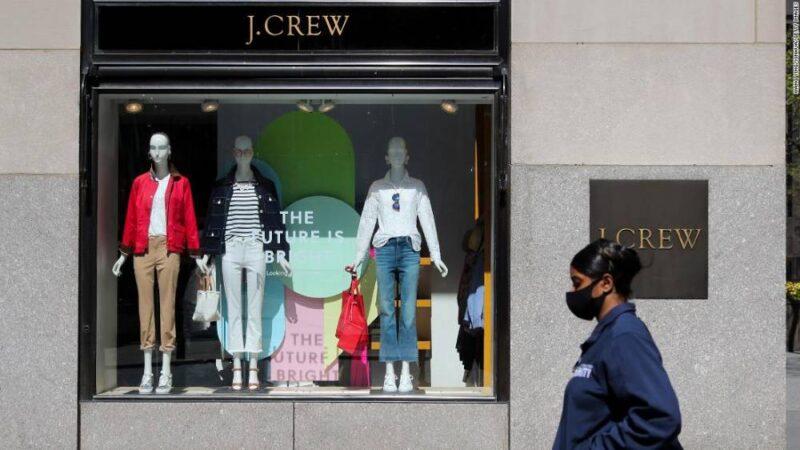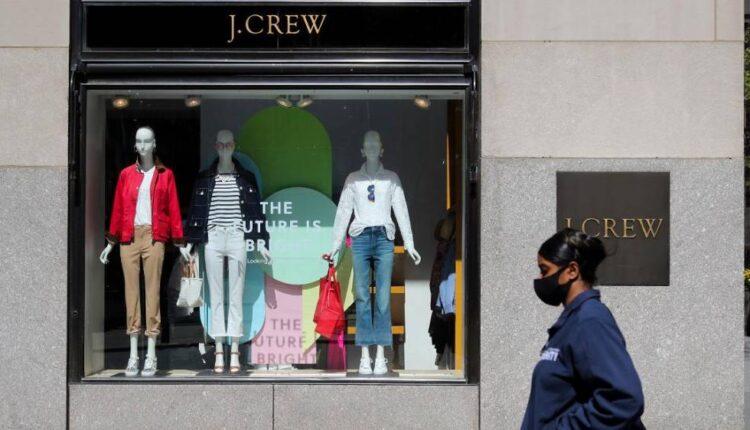A version of this story first appeared in CNN Business’ Before the Bell newsletter. Not a subscriber? You can sign up right here.
London (CNN Business)There’s at least one thing the pandemic hasn’t changed: Private equity firms entered the Covid-19 crisis flush with cash, and they’re due to leave it with full pockets, too.
What’s happening: When the coronavirus shut businesses and sent the global economy spiraling, there were concerns that private equity — which has boomed following the 2008 financial crisis — could pose problems. To enhance profits, these firms often engineer deals that saddle takeover targets with large amounts of debt. Should the value of those companies plunge as a result of weaker sales, their private equity owners could be in trouble.According to Bain & Company, more than 75% of US private equity deals last year were “highly leveraged,” meaning companies took on debt at least six times operational earnings.

Risky deals boomed during the bull market. Now some are blowing upSome private equity-backed companies ran into serious issues and had to seek out government assistance. But thanks to unprecedented central bank help, debt financing has remained cheap.Private equity emerged from the spring and summer with its reputation intact. Now, fundraising is once again on the rise.Read More”Private equity is absolutely awash with liquidity,” Viswas Raghavan, JPMorgan Chase’s chief of the Europe, Middle East and Africa region, told me.At the end of last year, dry powder — industry speak for cash still to be invested — reached a record $2.5 trillion, according to Bain. Manoj Mahenthiran, US private equity leader at PwC, told me that he thinks money on hand remains at that level, or is even higher.Over the past decade, as interest rates remained low, institutional investors like pension funds increasingly turned to private equity as a source of higher returns. With central banks pledging to keep interest rates near rock bottom for the foreseeable future, that pipeline of support is only poised to expand.The big question is where these firms intend to park all their money. High-growth assets like technology and health care firms remain private equity favorites. But many have become extremely expensive, making it harder to find a good deal.Some funds are eyeing assets in the hospitality or retail sectors, which have struggled this year. Scott Kleinman, co-president of Apollo Global Management, said at a conference last month that Apollo had invested roughly $5 billion in the airline and aerospace sector during the previous six months. Mahenthiran, however, said there’s no evidence that private equity funds are rushing toward distressed segments of the economy.Big picture: What’s clear is that the pandemic has not disrupted private equity’s growing clout.”The economy is definitely trending toward more private equity ownership,” Mahenthiran said. Millions of people are employed by PE-owned businesses.Ludovic Phalippou, a professor of financial economics at the University of Oxford, said academics are still analyzing the consequences of more private capital in the system. Private companies don’t face the same rigorous disclosure requirements as public firms, he noted.Private equity ownership also leads to an intense focus on extracting profits, per Phalippou — a different model than the increasingly popular “stakeholder capitalism” that encourages executives to focus on employee wellbeing and societal impact, as well as shareholder returns.”This is a very different world that is shaping up,” he told me.
Deal or no deal? For the United Kingdom, the clock is ticking
Britain is running out of time to reach a trade deal with the European Union. For real.The scene: When the United Kingdom left the bloc earlier this year, both parties agreed to a transition period that would run until Dec. 31. Almost a year later, the UK government is still locked in talks with its biggest trading partner — and they’re coming down to the wire.A call of EU leaders on Thursday is seen as the new deadline for reaching a draft agreement. If talks stretch much longer, there will begin to be big logistical issues tied to its approval.Major differences persist, however, raising the prospect that Britain could end the year without a deal in place. That would shock many businesses and could trigger huge disruptions at the border.”As another week of negotiations comes and goes, it’s clear we’re not there yet, and the same set of core issues that have divided talks for much of this year remain, for the time being, unresolved,” ING economist James Smith told clients Friday. Right now, investors think it’s most likely that London secures a pared-down deal that covers the trade of goods. Still, there’s plenty of uncertainty baked into the market, with the potential for big moves in the pound depending on the outcome. Sterling could rise as high as $1.35 if a deal is reached, Nomura currency analyst Jordan Rochester told me. It’s been trading closer to $1.31 in recent days. Without a deal, he said, the currency could plunge towards $1.20.”The market wouldn’t be ready for a no-deal Brexit,” Rochester said. “I think you would get a significant drawdown.”
Up next
Monday: Japan GDP; China retail sales and industrial production; JD.com (JD), Casper Sleep (CSPR), Tyson Foods (TSN), Baidu (BIDU) and SmileDirectClub (SDC) earningsTuesday: US retail sales and industrial production; Home Depot (HD), Kohl’s (KSS) and Walmart (WMT) earningsWednesday: US building permits and housing starts; Lowe’s (LOW), Target (TGT), TJX (TJX), L Brands (LB) and Nvidia (NVDA) earnings Thursday: EU leaders call; US initial unemployment claims and existing home sales; Campbell Soup (CPB), Macy’s (M) and Williams-Sonoma (WSM) earnings
Friday: G20 finance ministers meeting; Foot Locker (FL) earnings— Hanna Ziady contributed reporting.
Source: edition.cnn.com

